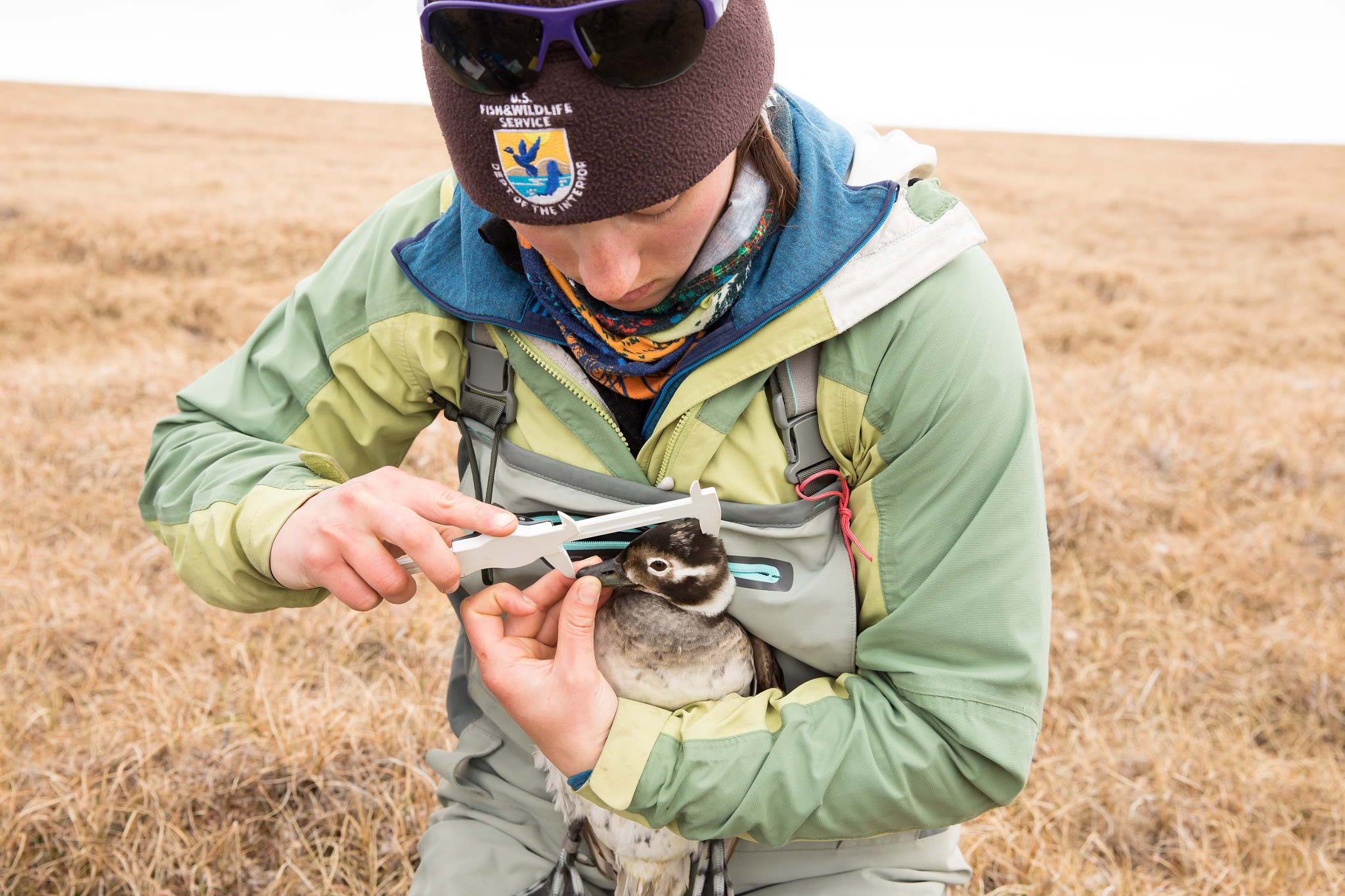The US participation at a major Arctic science summit suggests a return to science, climate leadership
But the true test of the Biden Administration's commitment will be how much funding it invests in Arctic research.

A major international Arctic science meeting brought together officials from 25 nations and six Indigenous organizations, and a strong U.S. presence there suggests the Biden Administration is serious about returning the country to a leadership role in climate action and Arctic science — if it’s followed up with concrete investments in the region.
Officials at the third Arctic Science Ministerial meeting, which was hosted by Japan but convened online last weekend, said that understanding and addressing climate change is the main priority in Arctic research. They also highlighted the importance of Indigenous knowledge and the co-production of scientific work with Indigenous researchers, as well as conducting work that matters to Arctic communities.
The strong focus on climate change, and the participation of U.S. officials — from the White House Office of Science and Technology Policy, the National Science Foundation, the National Oceanic and Atmospheric Administration and the U.S. Arctic Research Commission — signals the Biden administration’s shift toward addressing human-caused global warming in the Arctic, experts said.
“The United States had a very strong message about climate change and its importance,” David Kennedy, chair of the U.S. Arctic Research Commission, told ArcticToday.
[How you can help shape the next cycle of federal Arctic research funding]
The renewed involvement of prominent U.S. scientific officials “speaks volumes” about both the importance of monitoring and addressing climate change around the globe as well as the vital role of Arctic research, Kennedy said.
The U.S. hosted the first ever Arctic Science Ministerial meeting in Washington in 2016 during the administration of then-President Barack Obama.
But under the Trump administration, science and climate change took a backseat to resource extraction and geopolitics in the Arctic. The second Arctic Science Ministerial meeting, hosted by Germany in 2018, had limited engagement from the Trump White House, Kennedy said.
“They wanted to edit and monitor anything that we put forward. But they weren’t really players,” he said.
Scientists welcomed the return of active U.S. involvement at this third ministerial meeting, but the full extent of the Biden Administration’s focus on the Arctic, particularly when it comes to funding, is still unclear.
Although U.S. participation sends an “important message” about international collaboration, it “remains to be seen” how much the Biden administration will prioritize Arctic issues outside of meetings like this, Martin Jeffries, a retired federal polar scientist who helped the Obama White House organize the first meeting, told ArcticToday.
“We must measure seriousness about Arctic research in terms of investments,” Jeffries said. “Namely, it would be good to see budgets for Arctic research increase.”
From the first ministerial meeting in 2016, there has been a focus on encouraging participants to make new funding commitments, Jeffries said, but the U.S. hasn’t set a good example by doing so.
Better, faster observations of what is happening in the Arctic is a key concern for officials, scientists, and those who live within and outside of the region, experts said. Scientists need to gather and share data on how the system is changing over time — measured from space, on the ground, and by autonomous platforms, for instance.
The speed at which this data is collected and distributed is important for global decision makers, Jeffries said. “If you can get the data out in real time, then you can get the data, for example, immediately into the hands of the modeling centers and the forecast centers so we can have improved weather forecasts, improved ocean forecasts, and so on.”
The White House recently unveiled a wide-ranging and detailed infrastructure package. Including investments in Arctic science in such a plan would demonstrate a commitment to monitoring and responding to changes in the North and the way they affect the globe, Jeffries said. “This is a great opportunity for the Biden administration, because observing networks are infrastructure.”
Improving observations and other research initiatives “requires a country, or some small number of countries, to step up and say, ‘We’re going to make a new commitment to invest,’” Jeffries said. “Here’s an opportunity for the United States to step up and demonstrate that it is serious about once again being part of the global community.”
“Words are one thing, but actually doing something about it is another,” Jeffries said.
Kennedy called funding for more Arctic research “where the rubber meets the road,” but he said increased U.S. funding is “still very unclear.” Biden has not yet released his proposed budget, and Kennedy doesn’t know how Arctic research may figure into it. “I can anticipate that there will be some additional funding for observing, given the importance of it in the Arctic. But as of right now, I don’t see any additional funding beyond what’s there,” Kennedy said.
In the meantime, there are other ways to expand and strengthen Arctic science — especially by centering Indigenous knowledge-holders and communities throughout the research process.
Indigenous representatives, Kennedy said, were united in their message during the ministerial meeting: “Science has got to include us better than it’s been doing,” as Kennedy phrased it. “Everything from planning to execution to funding their own research.”
“Things have got to be different. Things have got to be better,” Kennedy said. Indigenous knowledge has “gotten a lot of lip service, but not nearly as much action as one would hope,” Kennedy said. “We’ve talked a lot about this. Now, what do we really do about it?”